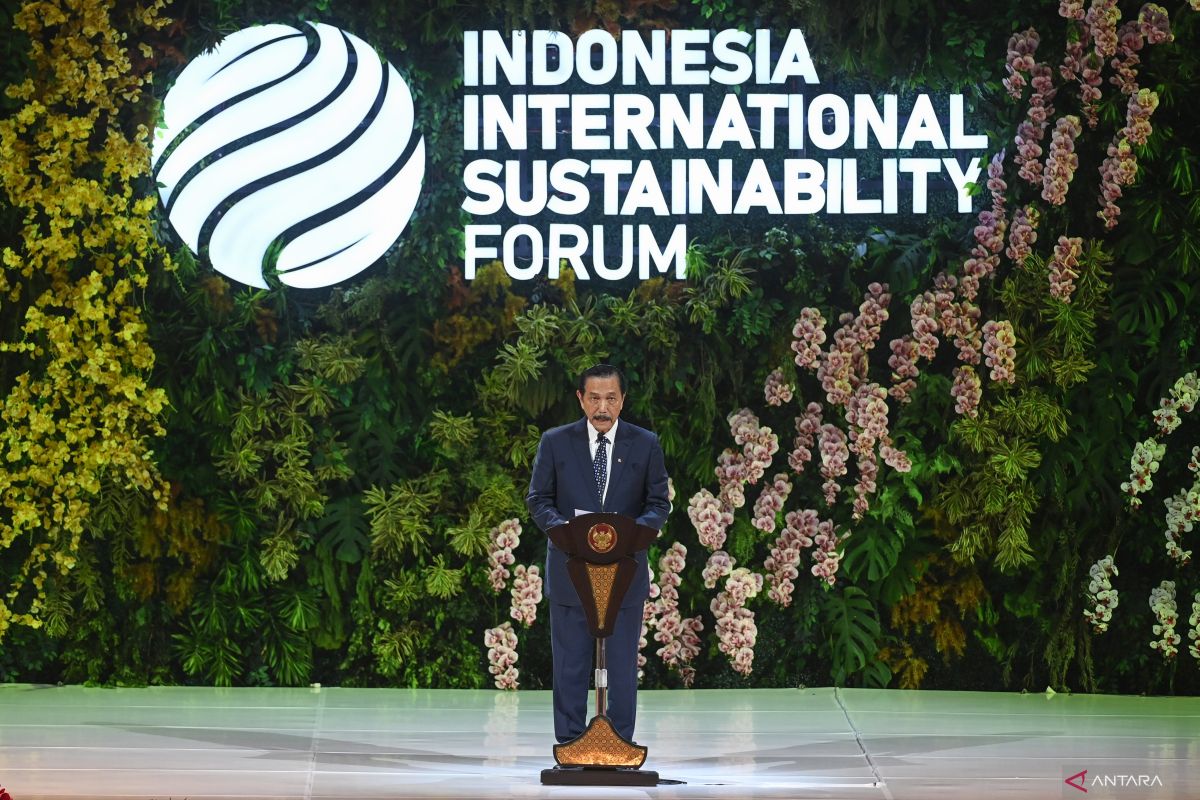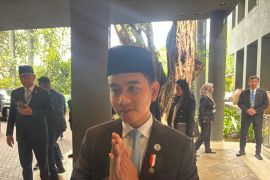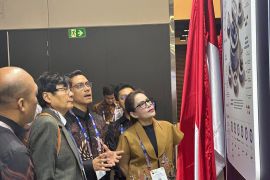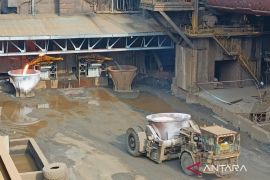In the past, the mining industry was strongly linked to environmental damage owing to deforestation, water pollution, and biodiversity loss that were caused.
Such activities often drew protests from the local community and environmental non-governmental organizations (NGOs). Many mines became the sources of prolonged social conflict, with local communities often marginalized by the exploitation of natural resources in their areas.
Despite the ecological and social risks, it was undeniable that the mining sector played an important role in the national economy by providing significant state revenues and opening up thousands of jobs for the community.
Amid discussions on the positive and negative impacts of mining, the world is now entering a new era that is highly dependent on critical minerals as a vital component in the global energy transition towards clean energy.
Indonesia as 'home' of critical minerals
The Indonesian Ministry of Energy and Mineral Resources defines critical minerals as a category of minerals that have important uses for the national economy but also have the potential for supply disruptions and do not have a viable substitute.
This type includes several minerals, such as nickel, lithium, and cobalt, which are not only the main components in the production of electric vehicle (EV) batteries but also play an important role in other renewable technologies, such as solar panels and wind turbines.
During the ISF 2024, Coordinating Minister for Maritime Affairs and Investment Luhut Binsar Pandjaitan reiterated that currently, the global need for critical minerals was increasing, along with the massive campaign of developed countries to abandon fossil fuels and switch to more environment-friendly energy sources.
Indonesia, with its abundant nickel reserves, actually has a strategic position in the global supply chain of this mineral. The country has vast potential in the development of rare earth elements that are key to future sustainable technology.
According to Pandjaitan, it is time for Indonesia to be known not only as a major nickel producer but also as a pioneer in sustainable mining management among developing countries.
Director cum Chief Sustainability and Corporate Affairs Officer of PT Vale Indonesia Tbk Bernardus Irmanto highlighted the importance of sustainable management of the vast potential of critical minerals in Indonesia.
"Having abundant critical mineral resources is a blessing for Indonesia, but it must also be managed properly," he emphasized.
With proper management, critical minerals can provide long-term positive impacts on the economy, society, and the environment.
Sustainable management of critical minerals can begin by building cross-sector partnerships, especially with the technology industry.
However, Indonesian mining companies are currently unable to provide effective technology to manage critical minerals. Thus, cross-sector collaboration is key to managing critical minerals based on sustainable principles.
As an example, Vale Indonesia has been collaborating with Ford Motor Co. and Zhejiang Huayou Cobalt Co. in the construction of a nickel smelter in Pomalaa, Southeast Sulawesi.
This partnership allows Indonesia not only to mine but also to process minerals with sophisticated technology, thereby providing added value to mining results and expanding access to international markets.
Reclamation as a long-term solution
Big challenges, including the social and environmental impacts of the mining industry, are still lurking in the business.
Thus, active participation of local communities and government approval are essential to ensure the continuity of mining operations.
Surrounding communities are often indirect victims of mining activities. Hence, community involvement is a crucial element in ensuring that mining projects can operate fairly and responsibly.
Responding to this challenge, Vale Indonesia strives to show that responsible mining is possible. To date, the company has succeeded in reclaiming 67 percent of the land cleared for mining.
Reclamation steps are considered part of the corporate social responsibility towards protecting and safeguarding the environment, with the hopes that former mining lands can return to functioning ecologically.
Several mining companies are currently starting to realize that land rehabilitation is not only conducted in mining concession areas but also outside them.
This approach is an example that the mining sector can go hand in hand with the efforts to preserve the environment, although mining activities cannot completely avoid the negative impacts.
However, another point to be noted is how reclamation can be carried out progressively and sustainably.
Mining companies can cut down trees during their operations, but the most important aspect is their commitment to restoring the damage caused to the environment. Such an effort sets a good example for other mining companies in the country.
Government oversight and social challenges
The role of the government is crucial in the management of critical minerals.
According to Co-Chief Operating Officer and Director of Social Performance at the International Council on Mining and Metals (ICMM) Danielle Martin, the government must continue to ensure that every mining activity follows strict social and environmental standards.
"Public trust in the mining sector is very important," Danielle stated.
Danielle cautioned that without the active involvement of the government and local communities, it would become increasingly difficult to ensure that mining projects run consistently with sustainability standards.
Deputy Minister of State-Owned Enterprises Kartika Wirjoatmodjo emphasized the government's commitment to environmental preservation.
It is a crucial aspect to always maintain a balance between economic interests and environmental preservation, he remarked.
"Actually, if we really think about it with a pragmatic approach, if mining companies have a broader paradigm, then they can see biodiversity as a long-term economic benefit rather than short-term accumulation of economic wealth," he explained.
Currently, innovative steps are being carried out by mining companies in Indonesia to start preserving biodiversity.
The steps include the issuance of mining licenses that cover social and environmental aspects as a whole. If a company is keen to carry out mining operations, it must remain committed to the license contract.
In this case, collaboration between the Ministry of Energy and Mineral Resources and the Ministry of Environment and Forestry is the spearhead in ensuring sustainable mining operations.
Director of the Project on Critical Minerals Security at the Center for Strategic and International Studies (CSIS) Gracelin Baskaran agrees that the right approach can ensure that Indonesia remains economically competitive while preserving the environment.
“A good mining company always has a good biodiversity conservation plan,” she remarked.
After all, critical minerals will be the backbone of the future. However, on the one hand, Indonesia realizes that mineral exploitation must be carried out wisely.
Sustainability is the main goal, where every step taken by a mining company is not only oriented towards profits but must also be focused on preserving the nature and lives of the surrounding community.
This turning point is a reflection of the hope that the mining industry, despite the plethora of challenges, can turn into a force that supports a greener and more sustainable future.
Related news: Indonesia Climate and Growth Dialogue launched at IISF 2024
Related news: Indonesian state firm plans gas power shift for net-zero by 2060
Editor: Rahmad Nasution
Copyright © ANTARA 2024









